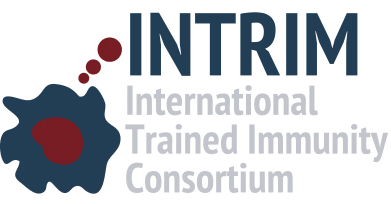Trained immunity: A new approach to the treatment of sepsis
Departments of Surgery and Biomedical Science, James H. Quillen College of Medicine, Center of Excellence in Inflammation, Infectious Disease and Immunity, East Tennessee State University, Johnson City, TN 37614
Research topic
Serious infection is a major threat to critically ill patients and frequently precipitates sepsis syndrome, septic shock, sepsis induced immunosuppression and multiple organ dysfunction syndrome. In the United States ~1,000,000 patients/year develop sepsis syndrome with approximately half of these patients in the ICU. The overall mortality rate is 28.6%. Those patients that survive the initial septic event may ultimately succumb to widespread organ dysfunction that can be either acute, due to hyper-inflammatory responses, or more prolonged due to immune dysfunction. It is well accepted that sepsis causes suppression of the immune system and that sepsis-induced immunoparalysis predisposes the critically ill patient to secondary infections. Attempts at developing effective therapies to prevent or treat sepsis have proven to be exceedingly difficult. In fact, no drugs are currently approved by the FDA for the management of sepsis. There is now compelling evidence that the innate immune system can be “trained” to respond more rapidly and effectively to pathogens following treatment with immune training agents. We are currently evaluating the effects of immune training on sequelae and outcomes in polymicrobial sepsis. We are also evaluating the impact of immune training in the prevention and/or treatment of sepsis-induced immune paralysis and organ injury. A successful outcome to this research may provide new and novel directions for the future management of sepsis patients.
Group leaders
- David L. Williams, Ph.D.
- Chuanfu Li, M.D.
- Tammy R. Ozment, DVM, Ph.D.
Group members
- Michael Kruppa, Ph.D.
- Harry E. Ensley, Ph.D.
- Douglas W. Lowman, Ph.D.
- Zuchao Ma., Ph.D.
- Yue Ning Jiao, Ph.D.
Selected publications
- Ifrim, D.C., Quintin, J., Joosten, L.A.B., Jacobs, L., Jansen, T., Gow, N., Williams, D., van der Meer, J. W.M., Netea, M.G. Trained immunity versus immune tolerance: The functional fate of human monocytes after engagement of various pattern recognition receptors. Clin. Vacc. Immunol. 21(4):534-45, 2014.
- Lowman,D.W., Greene,R.R., Bearden,D.W.,Kruppa, M.D., Pottier, M., Monteiro,M.A., Soldatov, D.V., Ensley, H.E., Cheng, S.C., Netea, M.G., Williams, D.L. Novel structural features in Candida albicans hyphal glucan provide a basis for differential innate immune recognition of hyphae versus yeast. J, Biol, Chem. 289(6):3432-43, 2014.
- Arts, R.J.W., Novakovic,B., ter Horst, R., Carvalho, A., Bekkering, S., Lachmandas, E., Rodrigues, F., Silvestre, R., Cheng, S-C, Wang, S., Habibi, E., Goncalves, L.G., Mesquita, I., Cunha, C., van Laarhoven, A., van der Veerdonk, F.L, Williams, D.L., van der Meer, J. W.M., Logie, C., O’Neill, L.A., Dinarello, C.A., Riksen, N.P., van Crevel, R., Clish, C., Notebaart, R.A., Joosten, L.A.B., Stunnengerg, H.G., Xavier, R.J., Netea, M.G. Glutaminolysis and fumarate accumulation integrate immunometabolic and epigenetic programs in trained immunity. Cell Metabolism 13;24(6):807-819, 2016.
- Zheng Z, Ma H, Zhang X, Tu F, Wang X, Ha T, Fan M, Liu L, Xu J, Yu K, Wang R, Kalbfleisch J, Kao R, Williams D, Li C. Enhanced glycolytic metabolism contributes to cardiac dysfunction in polymicrobial sepsis, J. Infect. Dis. 215(9):1396-1406, 2017
- Garcia-Valtanen, P., Guzman-Genuino, R.M., Williams, D.L., Hayball, J.D., Diener, K.R. Evaluation of trained immunity by b-1,3 (D) glucan on murine monocytes in vitro and duration of response in vivo. Immunol. Cell Biol. 95(7):601-610, 2017
- Wang, X., Ha., T., Liu, L., Kao, R., Kalbfleisch, J., Williams, D., Li, C. TLR3 Mediates Repair and Regeneration of the neonatal heart through glycolysis dependent YAP1 regulated miR-152 expression. Cell Death Differ (in press), 2018.
Financial support
- National Institutes of Health grant RO1GM119197
- National Institutes of Health grant RO1GM083016
- National Institutes of Health grant RO1HL0718337
- National Institutes of Health grant RO1GM122934
- National Institutes of Health grant RO1GM53522
